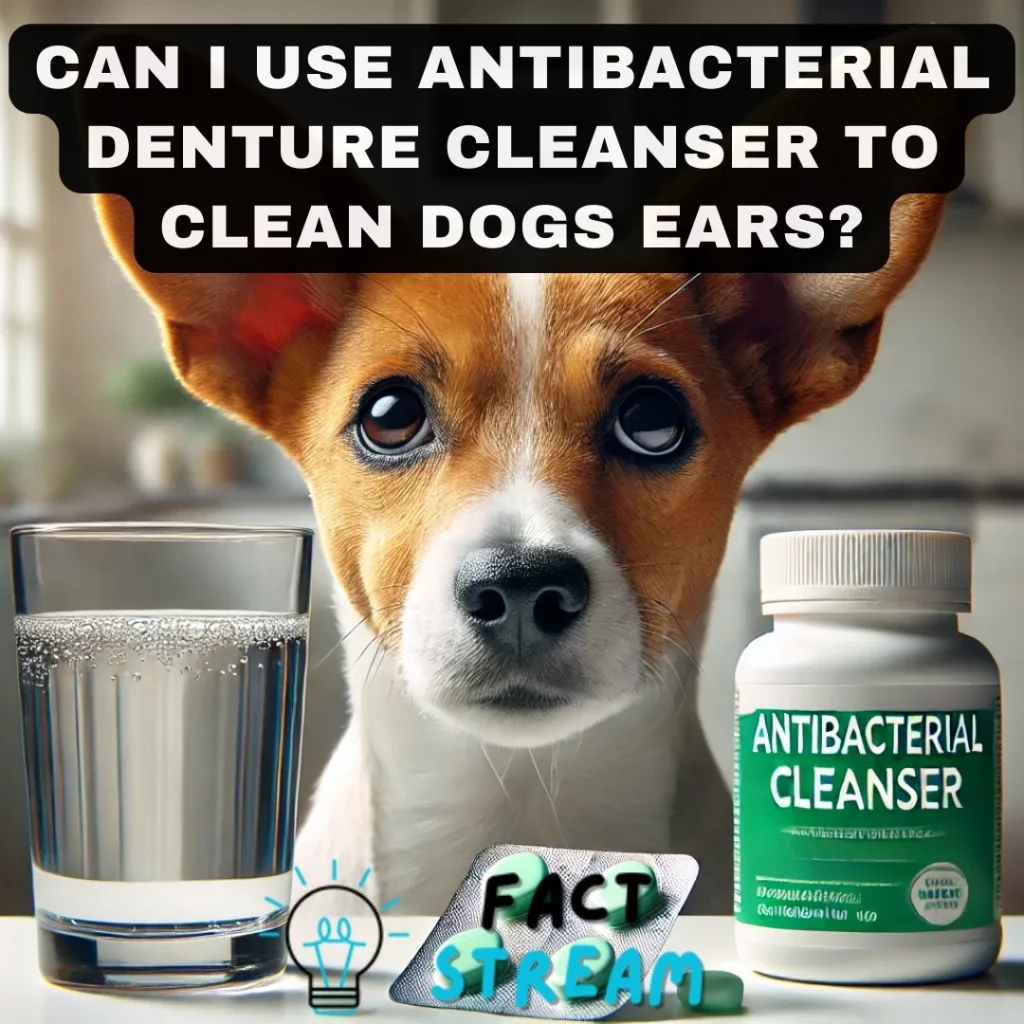Can I Use Antibacterial Denture Cleanser to Clean Dogs Ears?
You should never use antibacterial denture cleanser to clean your dog’s ears. Dog ears are sensitive and require special care, and using products not specifically designed for them can cause irritation, pain, and even damage.
Dog Ear Anatomy and Common Problems
Understanding your dog’s ear anatomy is crucial for proper ear care. Unlike human ears, a dog’s ear canal is L-shaped, which can trap moisture and debris, leading to infections.
Common ear problems in dogs include:
- Ear infections: Often caused by bacteria or yeast overgrowth, these are one of the most common reasons for vet visits. Signs of an ear infection include:
- Excessive scratching or pawing at the ears
- Head shaking
- Redness or swelling of the ears
- Discharge from the ears (yellowish or bloody)
- A bad odor coming from the ears
- Ear mites: Microscopic parasites that live in the ear canal, causing intense itching and irritation. A telltale sign is a dark, coffee-ground-like substance in the ear.
Why Denture Cleanser Is a No-No
Denture cleansers are designed to remove food particles and stains from dentures. They contain ingredients that can be harsh and irritating to the delicate skin inside your dog’s ears. These ingredients can disrupt the natural balance of bacteria and yeast in the ear canal, leading to infections.
Safe and Effective Dog Ear Cleaning
The best way to clean your dog’s ears is to use a veterinarian-approved ear cleaning solution. These solutions are formulated to be gentle and effective at removing dirt, debris, and wax without causing irritation.
Here are some tips for safe and effective dog ear cleaning:
- Gather your supplies: You will need a vet-approved ear cleaning solution, cotton balls or gauze, and some treats to reward your dog. Never use cotton swabs or Q-tips as they can push debris further into the ear canal or damage the eardrum.
- Choose a calm environment: Find a quiet place where your dog is relaxed and comfortable.
- Inspect the ears: Gently fold back the ear flap and look for any signs of redness, swelling, discharge, or a foul odor. If you notice any of these, stop and consult your vet before proceeding.
- Apply the cleaning solution: Fill the ear canal with the solution, being careful not to insert the tip of the bottle into the ear canal.
- Massage the base of the ear: Gently massage the base of the ear for 20-30 seconds to help the solution loosen debris and wax. You should hear a squishing sound.
- Allow your dog to shake their head: This will help dislodge debris and bring it to the outer part of the ear canal.
- Wipe away debris: Using a cotton ball or gauze, gently wipe away any debris that you can see in the outer part of the ear canal. Never insert anything deeper than your first knuckle.
- Reward your dog: Give your dog plenty of praise and treats to make ear cleaning a positive experience.
How Often Should I Clean My Dog’s Ears?
The frequency of ear cleaning depends on the individual dog. Some dogs may only need their ears cleaned once a month, while others, especially those prone to ear infections, may need them cleaned every other week.
Factors that may require more frequent ear cleaning:
- Floppy ears: Breeds with floppy ears, like Basset Hounds and Cocker Spaniels, are more prone to ear infections because their ears don’t get as much air circulation.
- Swimming: Frequent swimming can increase the risk of ear infections as moisture gets trapped in the ear canal.
- Allergies: Allergies can cause inflammation in the ear canal, making dogs more susceptible to infections.
Over-cleaning can also be harmful as it can irritate the ear canal and disrupt its natural defenses.
If you’re unsure how often to clean your dog’s ears, consult your veterinarian. They can assess your dog’s individual needs and recommend an appropriate cleaning schedule.
When to See a Vet
If you notice any signs of an ear infection or your dog seems to be in pain during ear cleaning, it’s important to see your veterinarian right away. They can diagnose the problem and prescribe the appropriate treatment, which may include medicated ear drops or oral antibiotics.


